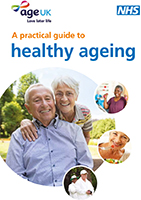Preventing falls

We all stumble or trip sometimes, but fear of falling can be a serious worry. Worry in this way isn’t unusual but it can lead to anxiety, isolation or depression.
Luton Falls Service
This is an NHS falls prevention service that offers:
- practical advice on preventing falls
- support following a fall
- home environment checks and recommendations
Find out more about the service offers and how to self refer if needed.
Follow our six steps to stay on your feet.
1. Regular exercise
Exercise can help reduce the risk of falling. Reduce the time spent sitting and take regular walks in the garden or the street to improve muscle strength.
See NHS for tips on:
Find activities and classes near you.
2. Check your eyesight and hearing
Keep your eyes healthy. Avoid smoking as smoking can increase the risk of cataracts. See your optician regularly. Hearing problems can affect your balance so see your GP if you need a hearing test.
3. Ask about your medicines
It's important to review your medication regularly. Low blood pressure and poorly controlled diabetes can cause you to feel dizzy or faint and can contribute to a fall.
4. Look after your feet
Wash your feet daily to help prevent infection. Keep your toe nails short. See a GP or chiropodist about any problems with your feet.
Read about footcare for older people.
5. Check your home for trip hazards
Remove clutter from around the home, the stairs and in the hallway. Don't wear trailing clothes that might trip you up.
Read the home safety checker from Age UK.
6. Visit your GP if you've had a fall
If you've fallen, a visit to your GP can help prevent any future falls.
What else can you do to prevent a fall?
You can take a self assessment test to see if you're at risk of falling - just answer a few simple questions.
- Download the falls prevention self assessment form
- You can also download a practical guide to healthy ageing from NHS and AGE UK
